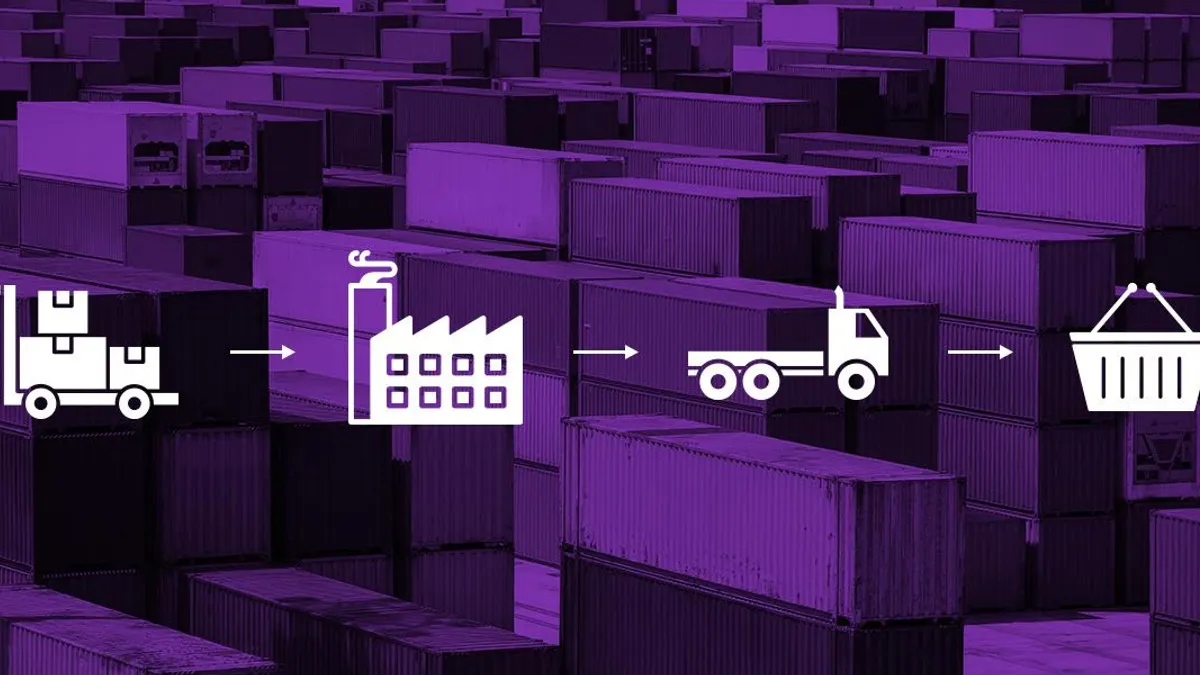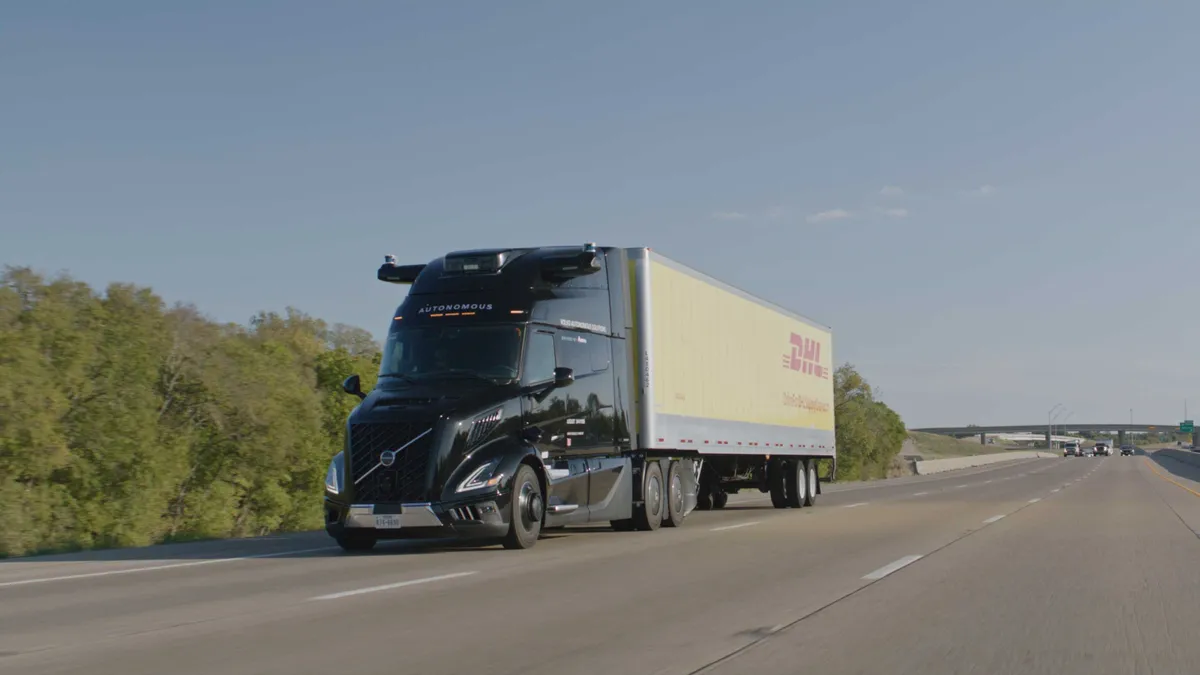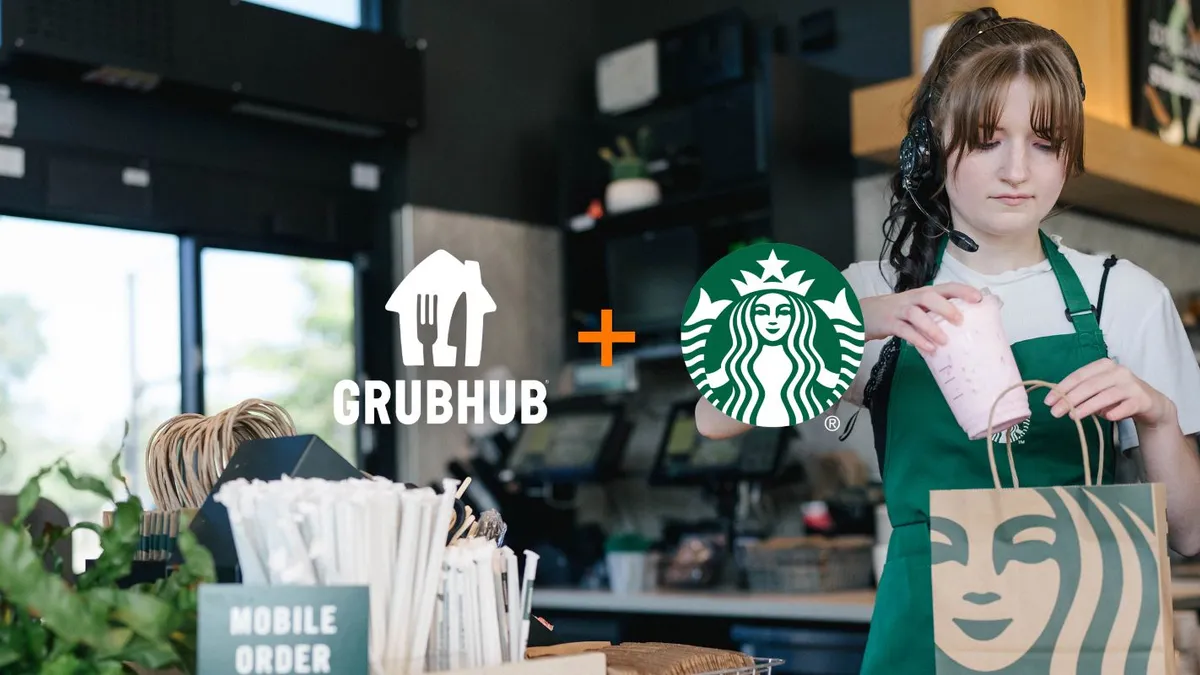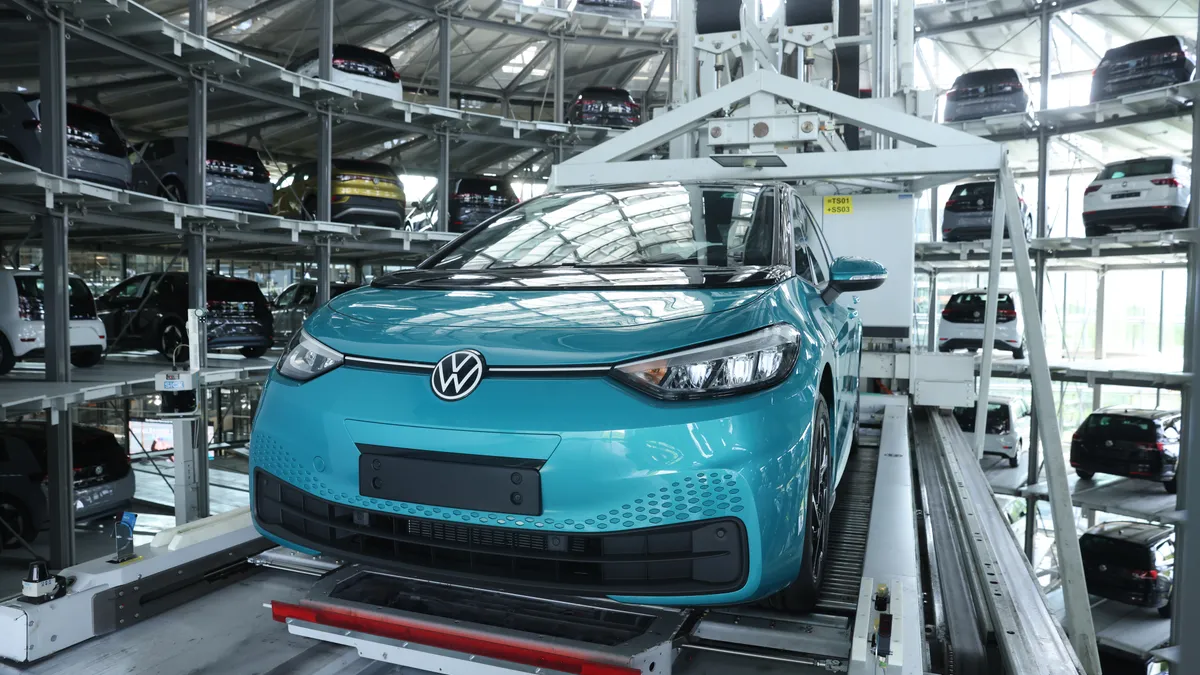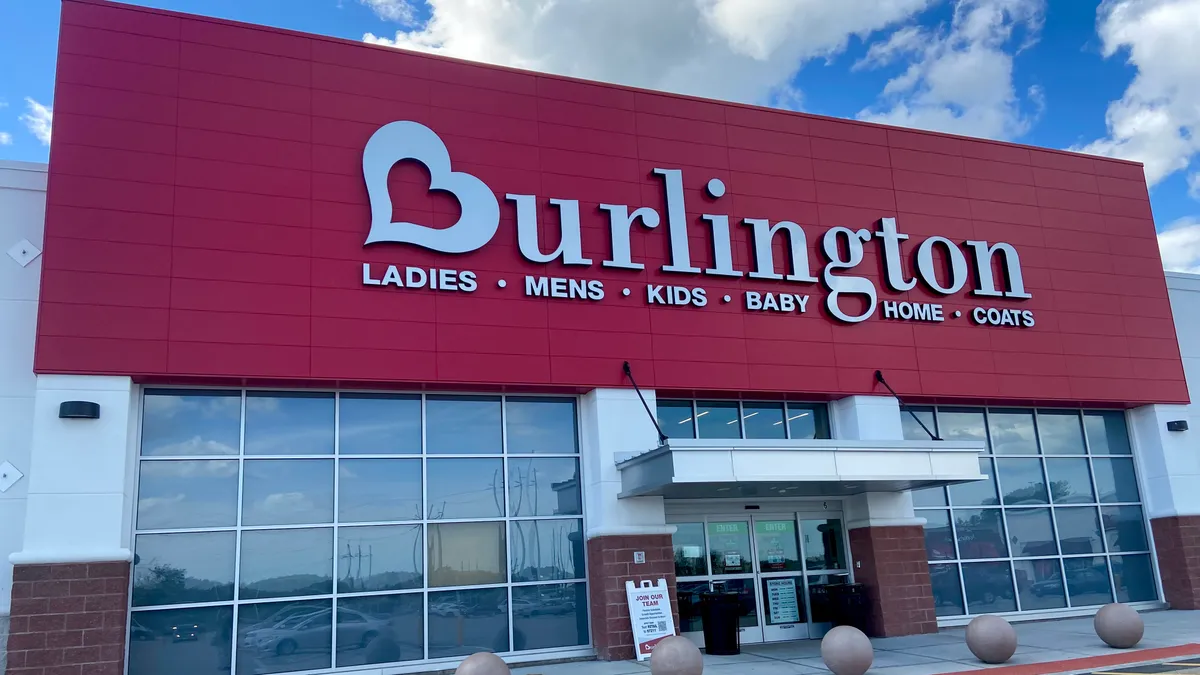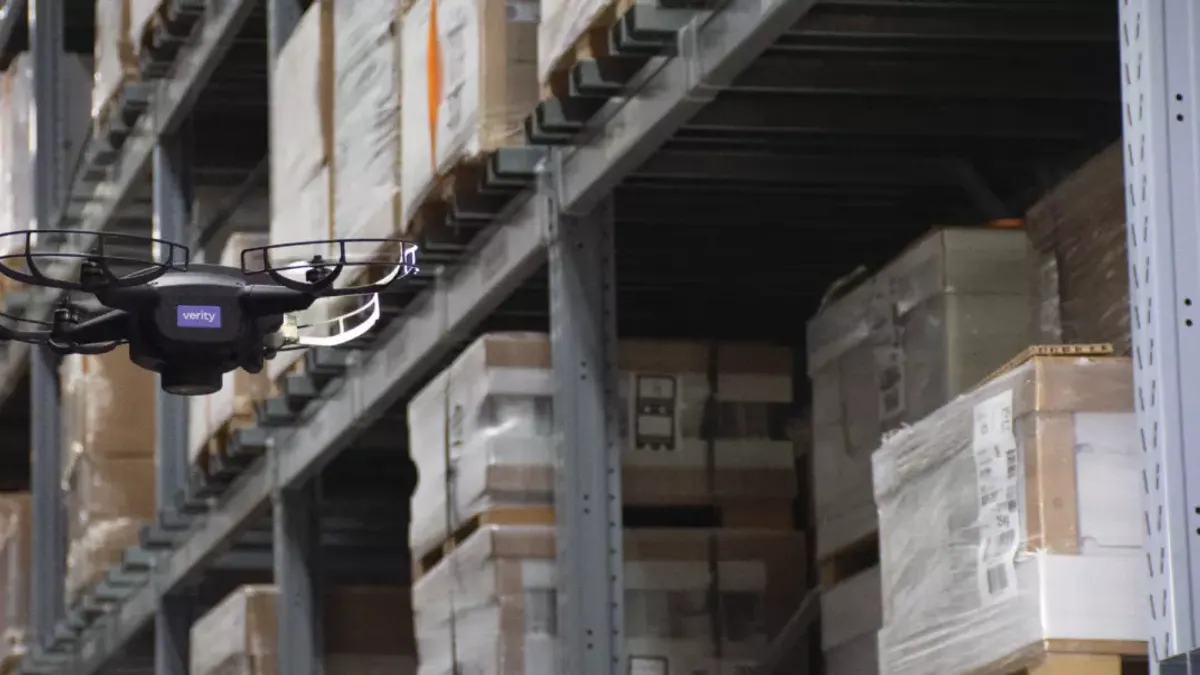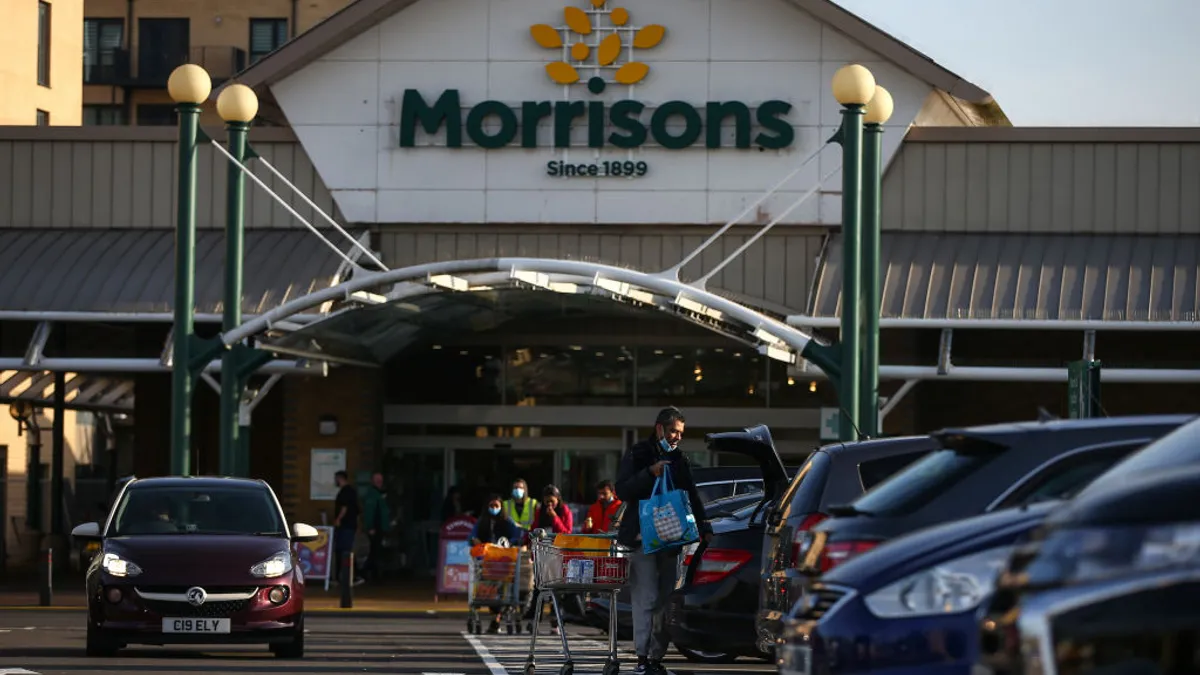There is no such thing as a boring year for the supply chain manager, and 2016 was particularly exceptional.
Besides the expected concerns over inventory availability and precise forecasting, 2016 brought a bevy of regulations, crises and disruptive technology to the market. Most importantly, a wide variety of events often highlighted how important supply chains can be for addressing disruptions and creating innovative solutions to move forward in the competitive landscape.
In that spirit, we present the 2016 Dive Awards for the supply chain. These awards are the byproduct of months of work and research. We solicited suggestions for nominees from our audience in August and then consulted industry insiders to help us narrow down the suggestions.
Ultimately, the winners were chosen by the editors of Supply Chain Dive. Here are our 10 winners for 2016:
Company of the year
Winner: Amazon
Amazon is a leader in the e-commerce innovation space, but our award to Amazon has more to do with the way the company sought to take control of its supply chain in 2016.
This year, the company expanded to make a variety of services accessible to the consumer through brick-and-mortar options – including Amazon locker, Amazon Fresh grocery pickup services, and Amazon bookstores.
The company also began to operate its own air freight network, threatening UPS and FedEx’s dominance in the process. Many of the ventures have yet to pay off, and some would argue Amazon may have bitten off more than it can chew with its logistics dreams.
But efficient supply chains are not built in a day, and Amazon’s eye for innovation has paid off in the past, making it one of the largest U.S. companies by market cap
Other nominees: A.P. Moller-Maersk Group, XPO Logistics.
Executive of the year
Winner: Rose Marcario, President and Chief Executive Officer, Patagonia
Exceptional leadership is often required to drive change throughout the supply chain, and Rose Marcario has gone beyond the expectations of a normal executive.
Her clothing company is an example for corporate responsibility advocates worldwide to follow. An influencer on LinkedIn, she consistently speaks to the needs of the world and how businesses are particularly positioned to help with those needs.
Patagonia has enforced this global awareness throughout their supply chain, too. Headquartered in California, the company has openly embraced the fight against modern slavery and for the protection of the environment. One click to the company’s corporate footprint webpage will reveal a map of every textile mill, factory, and farm used by the company.
Many of the initiatives have happened under Marcario’s leadership, and we believe her leadership is example to follow for all supply chain executives.
Other nominees: Christopher B. Lofgren, Chief Executive Officer, Schneider National; Jeff Bezos, Chief Executive Officer, Amazon.
Most disruptive/innovative idea
Winner: Cloud-based freight marketplaces
Cloud-based freight marketplaces are both innovative and disruptive, given their apt combination of a traditional supply chain growth with modern technology.
Commonly described as “Uber for freight” technology, online freight marketplaces directly connect shippers with carriers at a moment’s notice, while some even allow for a bidding process. Many companies still rely on the traditional freight-forwarder, but the disruptive idea is so promising at least ten startups have raised over $130 million since the technology first launched in 2012.
Most recently, the entry of “Uber Freight” into the market shows that the innovation’s momentum is moving in the right direction, and given enough uptake, could quickly disrupt the industry.
Other nominees: 3-D printing, self-driving vehicles.
Turnaround of the year
Winner: J.C. Penney
Company turnarounds are about more than the margins and revenues – they also are about the strategy.
Several companies mounted successful short-term turnarounds this year, but if supply chain strives to improve margins through better forecasting and inventory management, J.C. Penney is an example to follow. The company used analytics to spot, mark down and hone its assortment to include only inventory most-bought in-store.
Company turnarounds are about more than the margins and revenues – they also are about the strategy.

Sure, the company may have suffered a minor setback in sales last quarter due to increased competition from off-price retailers and weaker traffic, but considering the department store was near bankruptcy a few years ago, the turnaround it has shown this year remains remarkable.
Other nominees: Unilever, Finish Line.
Obsession of the year
Winner: Supply chain visibility
Supply chain visibility lies at the intersection of every other industry obsession, and for that, it deserves a special award.
The concept’s application is elusive at best – it demands the supply chain manager gain access to information about every link throughout the chain, including specific materials or supplier data. Simultaneously both risk- and consumer-focused, the concept promises to reduce the guesswork and improve margins.
Yet for that reason, vendors love it. After all, nearly all solutions can claim to improve visibility through better data collection. Yet, like “resilience,” “big data” and “omnichannel,” the concept must be broken down into components if it is to prove real value.
But perhaps the industry needs to obsess over visibility if it is to implement the full scale of traceability, tracking and transparency solutions.
Other nominees: Big Data, Omnichannel.
Machine of the year
Winner: The drone
It’s hard to compete with the drone on this one.
Amazon, FedEx and UPS are each pilot testing drone technology for use in their logistics operations. Multiple surveys exclaim the drone’s potential for reducing last-mile inefficiencies.
None of the other machine candidates made as much of a splash throughout the industry this year. Sure, visually-guided vehicles are making a comeback, as is industrial automated intelligence, but cultural challenges remain for both technologies.
Drones, however, are being implemented for a variety of uses worldwide and across various industries – to the point that the Federal Aviation Authority eventually chose to limit their use.
Other nominees: Visually-guided vehicles, Rethink Robotics’ Sawyer.
Crisis of the year
Winner: Hanjin’s bankruptcy
Unlike the various other crises that affected supply chains this year, Hanjin’s entry into receivership on August 31 uniquely impacted every link in the chain.
Thousands of containers were stranded for weeks, freight forwarders were not receiving payment, shipments never arrived to manufacturers or retailers and outstanding legal claims must still be resolved in court.
On top of all that, analysis of why the world’s seventh largest shipper went bankrupt has brought many of the difficulties faced by the shipping industry to light.
Like a trauma, shippers are unlikely to forget the man-made crisis any time soon – and for that, we award Hanjin this unfortunate award.
Other nominees: Kumamoto Earthquakes, Brexit.
Influencer of the year
Winner: Tania Seary, Founder,Procurious
Tania Seary has done with Procurious precisely what any conference or supply chain certification organization aims to do: provide a platform where like-minded professionals can engage in conversation, share best practices, read industry news and acquire a recognized toolkit for business success.
Influencers can easily share their thoughts and research with wide audiences – but it takes a special vision to encourage others to do the same.

The difference for Procurious? Seary’s organization is a social media platform exclusively designed for procurement professionals, but is devoid of membership fees or other barriers to access.
In the age of the internet, influencers can easily share their thoughts and research with wide audiences – but it takes a special vision to encourage others to do the same.
Other nominees: Bill McDermott, Chief Executive Officer, SAP; Bob Ferrari of Supply Chain Matters; Lora Cecere of Supply Chain Insights.
Most impactful regulation
Winner: Safety of Life At Sea (SOLAS) Verified Gross Mass Amendment
Regulations are often hit or miss; many of them lack proper enforcement mechanisms, target only specific segment of the industry or are merely a method for catching laggards up to best practices.
But the September deadline for complying with the updated regulation, which mandated verified gross mass for containers, forced many shippers to change their practices or coordinate with carriers to ensure compliance.
Despite the initial concern over the short, under two year compliance timeline for the global regulation, when the rule came into effect in September, only a few companies few were still non-compliant. After all, there is no greater pressure to comply with a new regulation than the potential for a carrier to not accept a shipment due to lacking paperwork.
Other nominees: DOT FMCSA Final Rule 49 on Electronic Logging Devices, U.N. Paris Agreement (COP 21 Accord on Climate Change).
Most valuable logistics startup
Winner: Matternet
The logistics space is ripe for disruption, and while there are numerous delivery-by-drone startups on the market, Matternet’s various partnerships makes the company a leader in the startup space.
Most recently, the U.S.-based Matternet partnered with Daimler to develop a self-driving van capable of deploying a drone to deliver packages to the doorstep, minimizing last-mile costs. Previously, the United Nations had also used the company’s drones to more efficiently transport medical supplies between laboratories and hospitals in Malawi.
But don’t take our word for Matternet’s potential, many investors agree. The company has raised $12.98 million through four rounds of private equity funding in the five years since its founding.
Other nominees: Flexport, Keeptrucking.
The 2016 Dive Awards were distributed across our twelve vertical markets: BioPharma, CIO, Construction, Education, Food, Healthcare, HR, Marketing, Retail, Supply Chain, Utility, and Waste. Click here to see all of the Dive Awards winners.



